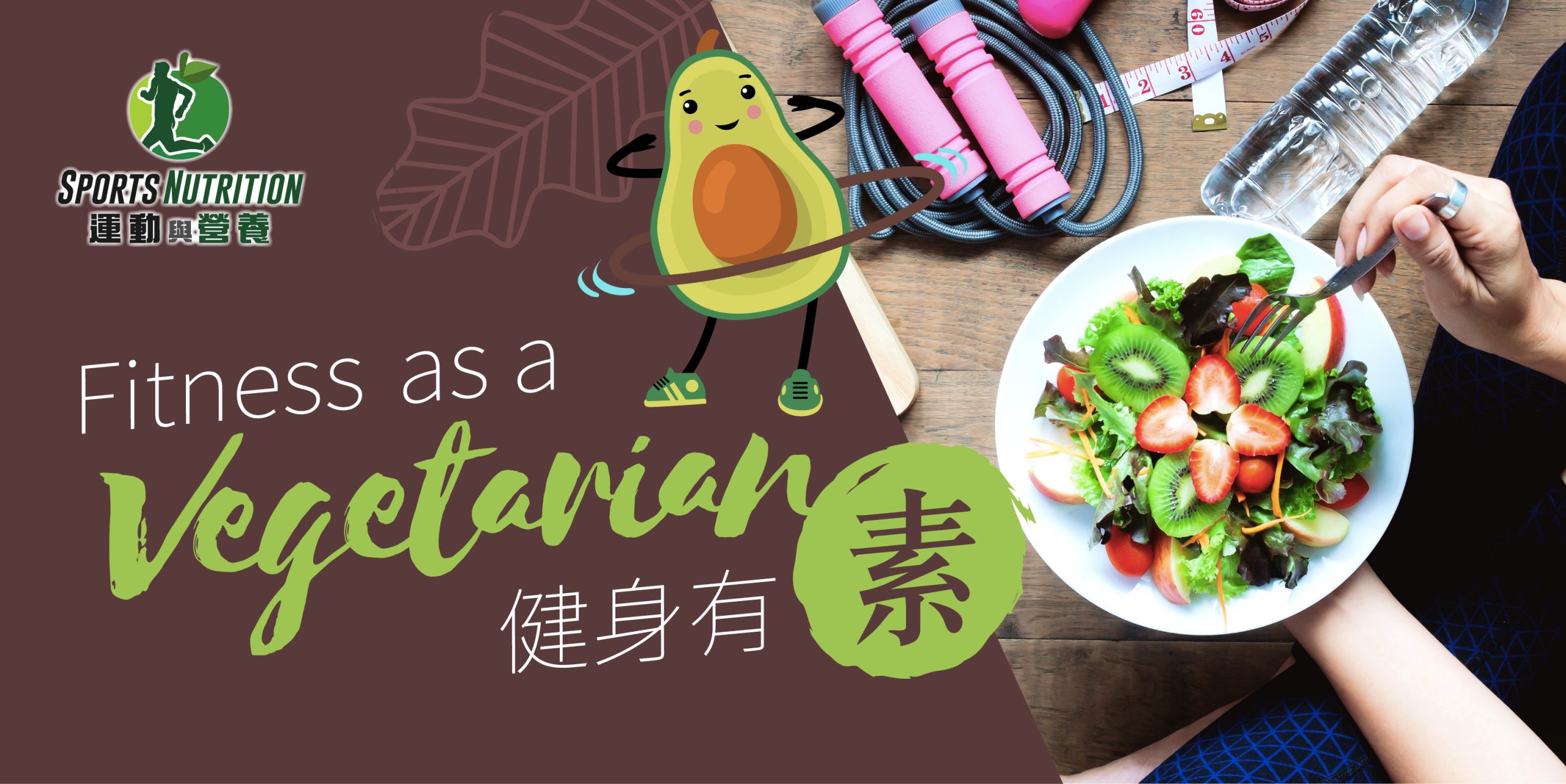[Sports Nutrition] Fitness as a vegetarian
June 30, 2022
blog

We are already halfway through 2022, can you believe it? A lot of us have made a pledge to adopt a healthier lifestyle by switching to a plant-based diet and exercising regularly. On the third edition of our Sports Nutrition series, let’s discuss several tips on planning a smart vegetarian diet to support your exercise regime!

- Maintain a well-balanced and diverse diet. Rule #1 of adequate nutrition applies to everyone. Regardless of the plant-based diet you are following, it is important that you fill your plate with different food groups, especially plant-based substitutes for nutrients otherwise supplied from animal products. In short, feed yourself more than just leaves!
- Pay extra attention to nutrients of concern. While a plant-based diet can provide all nutrients we need (except vitamin B12 for vegans), some nutrients are generally in lower content levels in plant foods versus animal foods.
| Nutrient | Plant-based food sources |
| Protein | Lentils, beans, chickpeas, nuts and seeds (including their butters), tofu and other soybean products, tempeh, eggs* and dairy* |
| Omega-3 fatty acids | Walnuts, chia seeds, flaxseeds and the oil, hemp seeds and the oil, rapeseed oil |
| Vitamin B12 | Fortified foods such as breakfast cereal and yeast extracts, vitamin B12 supplement#, eggs* and dairy* |
| Vitamin D | Fortified foods such as breakfast cereal, fortified plant milks, egg yolks* and sunlight |
| Calcium | Firm tofu, tempeh, sesame seeds, kidney beans, leafy green vegetables, fortified plant milks |
| Iron | Soy products, spinach, black fungus, kidney beans, dried fruits, nuts, seeds and whole grains |
| Zinc | Legumes, nuts, seeds, whole grain and fortified foods such as breakfast cereal |
| Iodine | Seaweed e.g. nori, wakame, kelp no more than once a week Fortified plant milks |
*Eggs and dairy products are suitable for lacto, ovo and lacto-ovo vegetarians.
#Vegans may only acquire vitamin B12 from fortified foods or supplementation. Please consult your dietitian for a personalized recommendation.
- Snack smart before and during training as needed. As mentioned before, adding a small carbohydrate snack for sessions longer than 90 minutes helps reload your body with energy! Since some people may experience gastrointestinal discomfort with the higher fiber intake especially when they first went plant-based, you may want to observe how your body responses and avoid high-fiber foods as needed.

Pre-exercise and mid-exercise, plant-based snack examples:
- Fresh fruits
- Dried, unsweetened fruits
- Low-fat yogurt parfait with fresh fruit toppings
- Mini sandwich with your choice of nut butter
- Half a bagel with nut butter / jam / cream cheese (if not vegan)
- Onigiri rice balls
- Replenish on carbohydrates and proteins after exercise. This is when your body needs carbohydrate to restore the energy used as well as quality protein to repair and build the well worked muscle mass. Since you are now off the treadmill, it might be a better time to also catch up on your fiber intake with excellent food sources such as leafy dark green vegetables, lentils, whole grains, etc.!
- Consult your dietitian for a personalized dietary plan as needed. Daily nutritional needs may vary among individuals. For those who concerns, book a meeting with your dietitian to find out what works best for you!

References:
- British Dietetic Association (BDA). Sport and exercise. Available at: https://www.bda.uk.com/resource/sport-exercise-nutrition.html. Accessed on 14 June, 2022.
- Academy of Nutrition and Dietetics (AND). Building Muscle on a Vegetarian Diet. Available at: https://www.eatright.org/fitness/training-and-recovery/building-muscle/building-muscle-on-a-vegetarian-diet. Accessed on 14 June, 2022.
- Sports Dietitian Australia (SDA). Why is Iron so important for athletes. Available at: https://www.nswis.com.au/nutrition/why-iron-is-so-important-for-athletes/. Accessed on 14 June, 2022.

